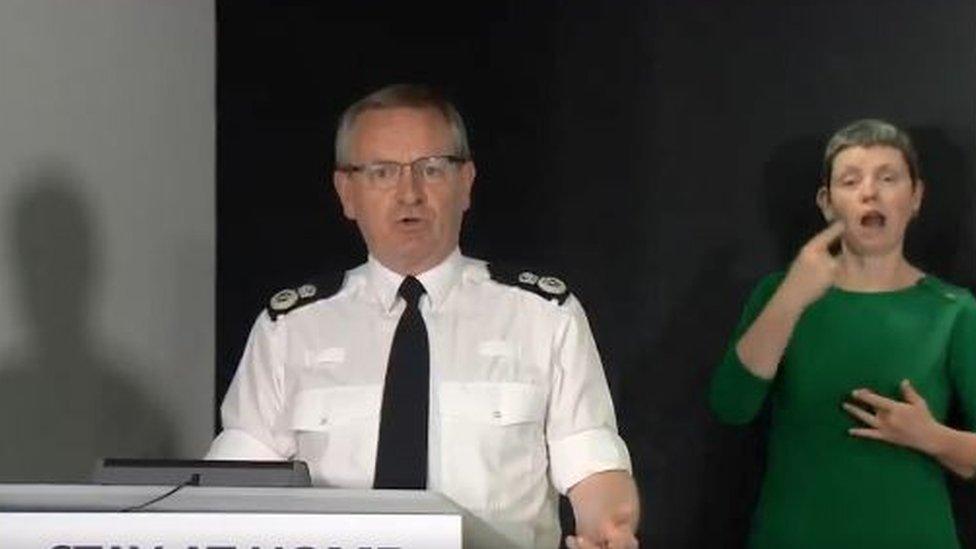Covid in Scotland: How has the pandemic affected crime levels?
- Published
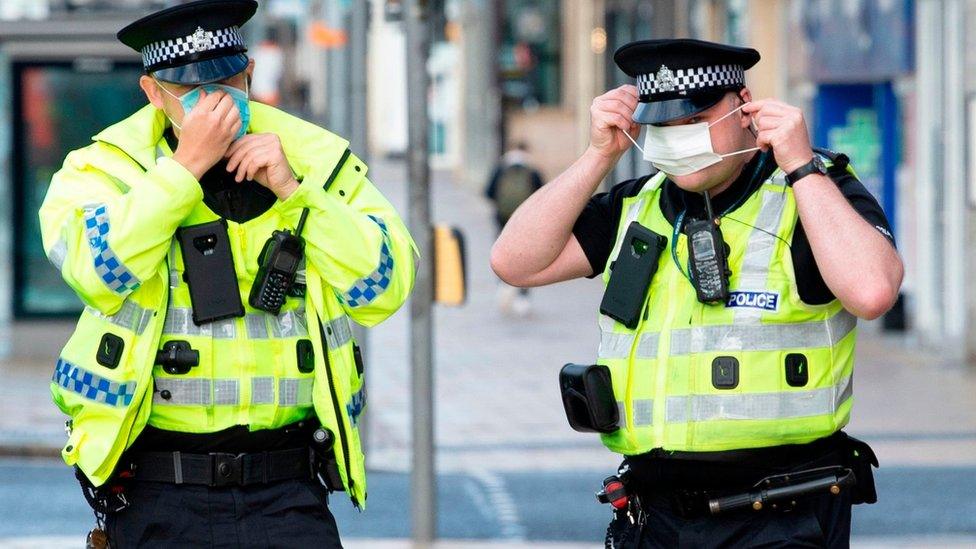
Fraud and child sexual offences online have soared during the pandemic, according to Police Scotland figures.
The force's latest quarterly report, external also shows notable increases in domestic abuse, assaults on emergency workers and anti-social behaviour.
Overall violent crime is down on last year and there has also been a dramatic reduction in the number of road deaths and casualties.
But Deputy Chief Constable Fiona Taylor said more normal patterns of crime were returning.
"Reported crime across a number of categories has returned to what we would normally expect to see, following a significant overall decrease during lockdown," she said.
Here are some key points from the latest report.

Fraud
The global health crisis has created a wealth of opportunities for criminals to exploit as people are spending more time at home and online.
Police Scotland has identified 23 serious organised crime groups who are involved in fraud, including scams related to VAT, mortgages, benefits and excise duty evasion.
A total of 7,466 crimes have been recorded since April - an increase of 45.4% on the previous 12 months.
When compared with the five-year average, offences are up 83.4%.
The report notes: "Fraud is among the fastest growing and widest ranging forms of acquisitive crimes in Scotland.
"This was particularly evident at the beginning of this reporting year when the ongoing pandemic created opportunities for fraudsters to exploit changed working and lifestyle conditions and the expanded reliance on technology."
The force will launch a dedicated fraud campaign over the festive period and details the scams to look out for on its website, external.
Child Sexual Offences

The NSPCC, external warned the pandemic has created a "perfect storm" for online predators who target children.
The charity has highlighted the boom in video chatting and live streaming as a major cause for concern.
A total of 1,036 online child sexual abuse crimes have been recorded this financial year, an increase of 18.4% on 2019/20.
The police report said: "It was anticipated that there would be an increase in these crime types during the lockdown period due to the increased presence online, heightening exposure to risk.
"However, there is also evidence of good parental supervision and identification of concerns and, as the schools have returned, reports resuming from schools and teachers."
Deputy Chief Constable Taylor added: "The rapid increase in online abuse and exploitation of vulnerable people and children, either for financial gain or for sexual purposes, underlines that policing must continue to operate in public, private and, increasingly, in virtual spaces to provide education, re-assurance and enforcement."
Emergency worker assaults
The overall fall in violent crime has been driven by a reduction in the number of common assaults during the first quarter of the year, before the lockdown restrictions were eased.
But the report, which will be presented before the Scottish Police Authority's Policing Performance Committee next week, underlines one worrying development.
It said: "A main exception within overall violent crime is the rise in common assault (of emergency workers), the majority of which relate to police officers and police staff."
An additional 274 crimes were recorded from April to September - up 7% on last year and 20.4% above the five-year average.
Domestic abuse
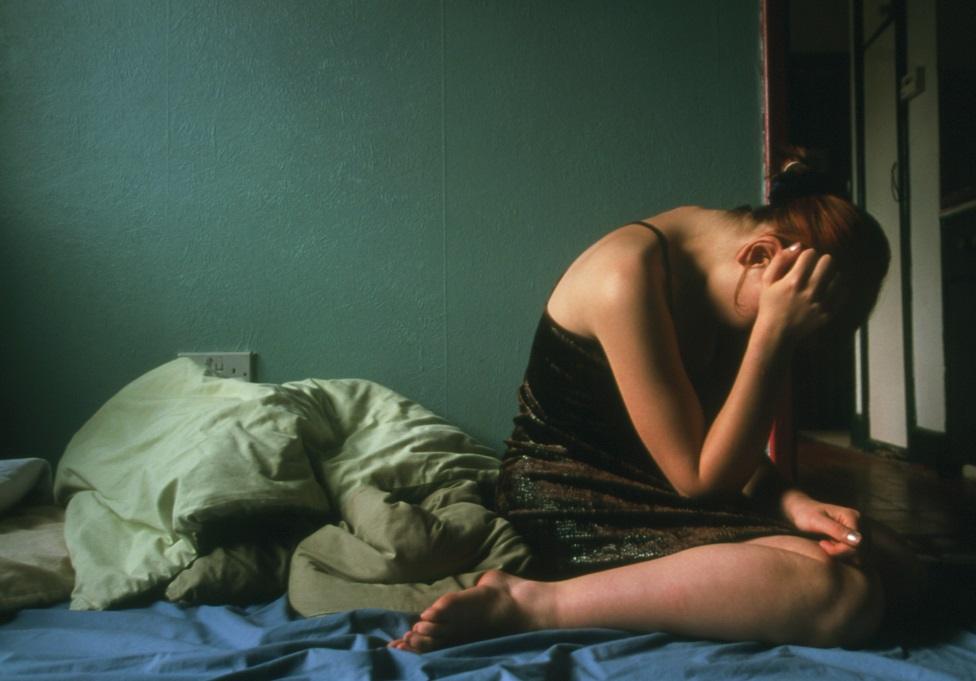
This crime category was red-flagged at the start of the pandemic as it had already been increasing year-on-year since 2016/17.
The report said: "During lockdown, Police Scotland and key partners recognised the increased challenges for victims and/or those at risk, to report domestic abuse or seek help and advice as they followed government guidance in terms of social distancing and self-isolation."
In the year to date 34,103 incidents have been recorded, up 7.6% on the previous 12 months.
The Domestic Abuse (Scotland) Act, which criminalised coercive and controlling behaviours, was introduced in April last year.
In the first six months of 2020/21 a total of 774 offences were recorded - all but 50 of which involved a female victim.
Anti-social behaviour
Since April a total of 233,265 antisocial behaviour incidents have been reported by the public - up 34% on last year.
As happened during the first quarter this has been driven by public nuisance calls, such as noise complaints and neighbour disputes, in relation to non-compliance with the Covid-19 regulations.
In August the Scottish government announced measures to combat house parties, after they were linked to outbreaks.
From 31 August to 4 October officers attended 2,346 household gatherings and found 755 to be in breach of the regulations or guidelines.
Wildlife crime
The biggest percentage increase involves wildlife crime, which rose from 111 to 203 (up 82.9%) in the first six months of the financial year.
The report notes: "This is due to a range of factors, including Covid-19. The shift towards people taking up fishing through lockdown continues to be evidenced in the rise of salmon and freshwater fisheries offences."
A total of 84 fishing offences were recorded - an increase of 281.8%.
There has also been a renewed focus on hare coursing, including a recent operation in East Lothian.
This resulted in several people being reported to the Crown Office on 21 charges, the largest report of its kind ever submitted in Scotland.
Det Chief Supt Gary Cunningham said investigating such crimes can be "demanding and complex" but urged the public to report any suspicious activity.
He added: "Scotland's diverse wildlife is one of its greatest assets, yet there are those who seek to destroy it.
"Wildlife crime has an enormous impact not only on our natural heritage but also on those communities that rely on the employment and tourism it brings."
Violent crime
Overall violent crime is down 8% on last year, thanks mainly to a decrease in common assault and serious assault.
But the trend is not true across the board and, between April and September, police recorded 153 attempted murders - 11 more than the same period last year.
Attempted murders have been "particularly high" in the north of Scotland where 31 crimes were detected, many of which were either drugs-related or linked to mental health issues.
After an almost 16% drop in violent crime between April and June, the report notes the period from July to September saw a return to previous levels as the lockdown restrictions eased.
Drugs

Police have revealed 30 crime groups in Scotland are attempting expand their drugs operations into smaller towns.
The report said: "They endeavour to exploit young and vulnerable people to sell drugs, carry cash and weapons, bringing violence, coercion and abuse. They may also take over a vulnerable person's house, known as "cuckooing".
"County Line gangs groom and exploit the most vulnerable people in our communities including children and young people to store and sell drugs. They are intimated, coerced, threatened and often subject to violence."
As with the attempted murder figures the problem is particularly acute in the north of the country, where intelligence suggests 21 groups are active.
The pandemic has delayed Scotland's drug-related deaths figures but they are expected to be published next month.
Road safety
One positive this year has been a significant fall in the number of people killed on Scotland's roads.
There have been 50 fatalities in the last six months, compared to 88 this time last year (down 43.2%).
The number seriously injured has also declined markedly from 1,037 to 695 (down 33%).
Data for September shows the figures are slowly increasing, especially around beauty spots due to staycations, and this is expected to continue to level out as traffic volumes return to normal levels.
Policing Covid
Emergency legislation gave officers new powers as Scotland was placed into lockdown.
Between 27 March and 30 September, under Operation Talla, the force made 333 arrests and issued 3,603 fixed penalty notices.
Fines start at £30, doubling to £60 if they are not paid within 28 days. Repeat offenders can face fines of up to £960.
Officers also returned 492 people home using "reasonable force" and instructed people to disperse on 14,485 occasions.
Over the six-month period police engaged with the public about the virus on more than 75,000 occasions.


- Published19 November 2020
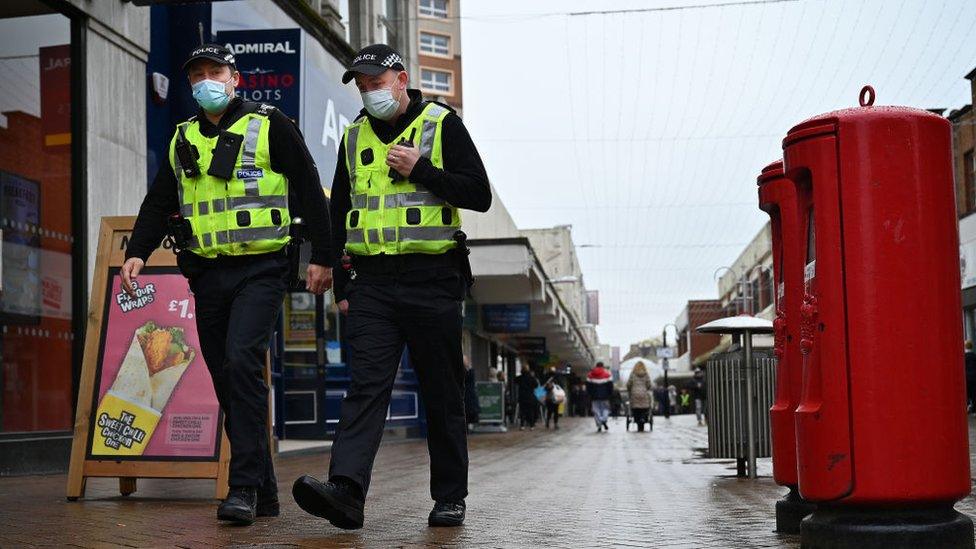
- Published28 October 2020
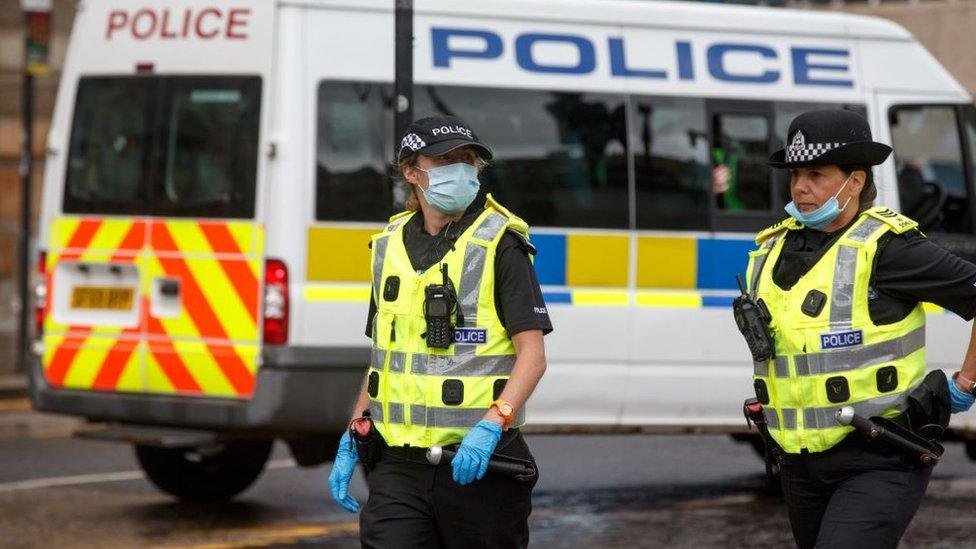
- Published30 September 2020
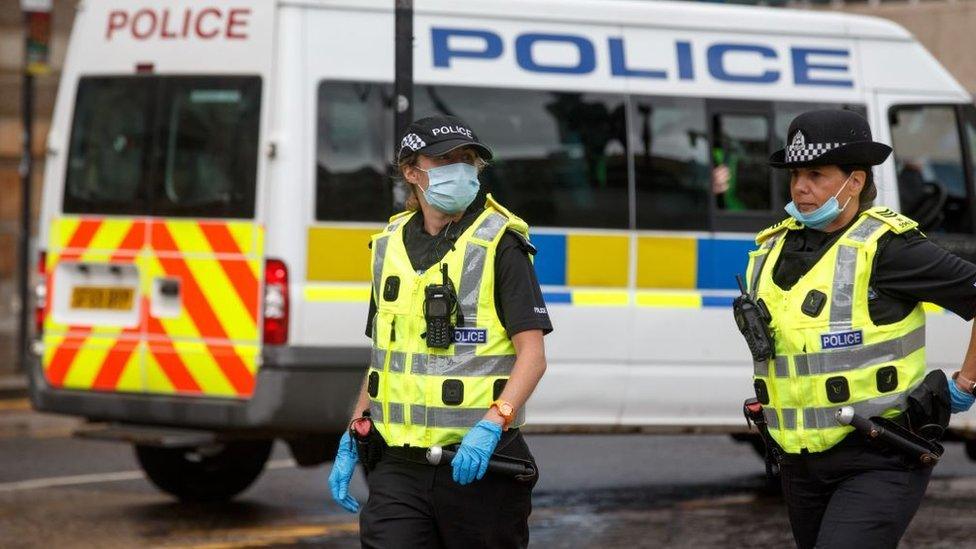
- Published5 June 2020
